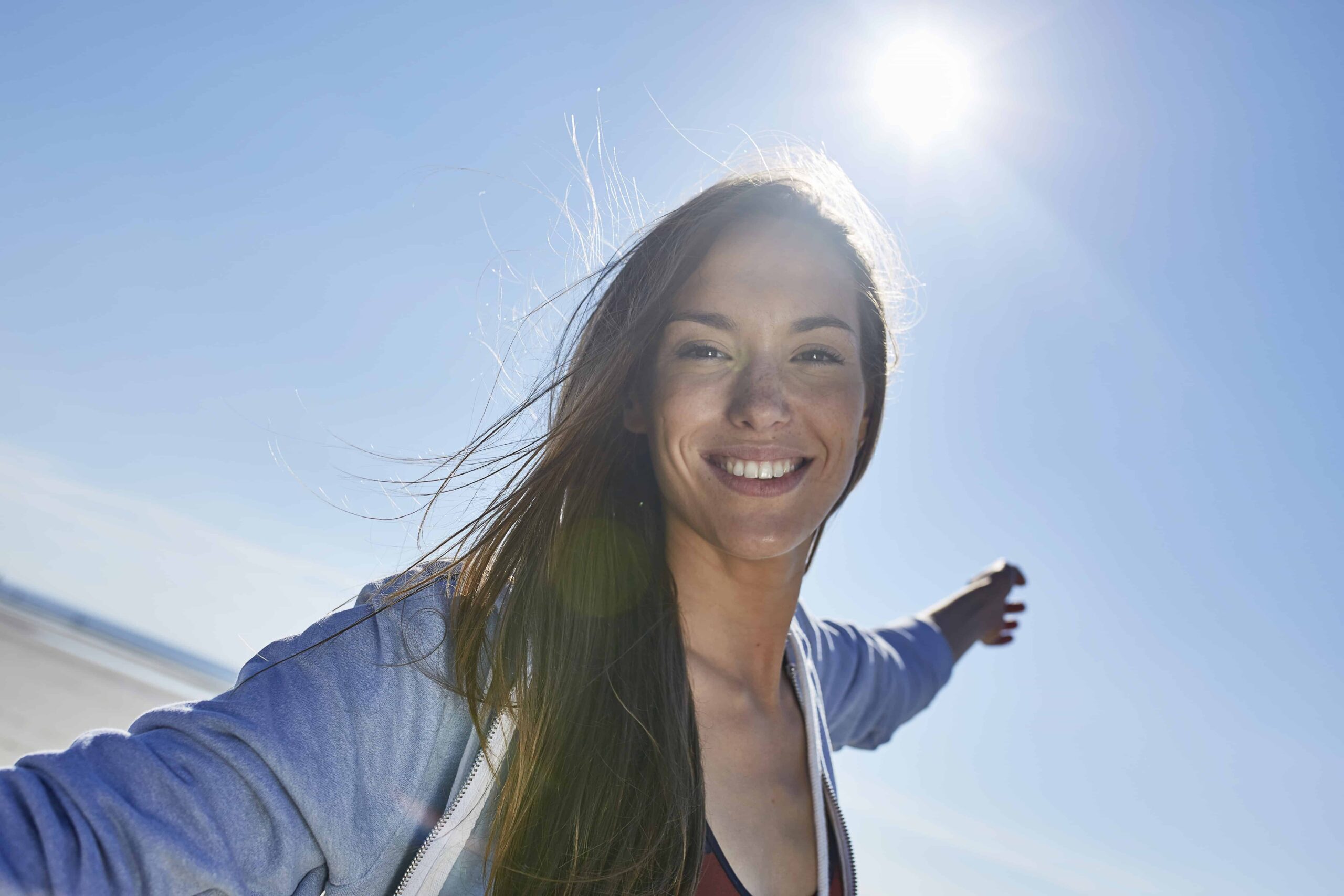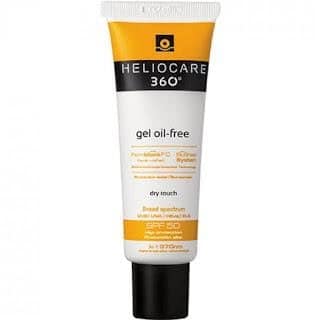SPF is your BFF

Don’t get me wrong sitting in the sun is one of life’s little pleasures but sitting in the sun safely is one of life’s lessons. I certainly do not want to be prematurely ageing and I imagine neither do you. Ultraviolet rays (U.V.) rays from the sun is the major cause of premature ageing. UV rays are present even on cloudy days. Wear sunscreen ALL YEAR ROUND.
Let me explain the different types of photo ageing radiation:
UVB radiation ‘B for Burning’= burn the top layer of your skin.
UVA radiation ‘A for Ageing’=go deeper in the skin and cause premature ageing.
There are other types of harmful rays that can cause ageing- Visible light and infrared radiation.
Visible light radiation is all around us. It’s what we see. This causes photo ageing damage by free radical exposure harming skin cells. It affects deep into the dermis ( deep skin)

Infrared radiation act similar to visible light radiation but penetrate to very deep skin layers causing photo ageing. These rays come from the very device you are reading this post on-mobiles, tablets,computers,etc. This has the deepest penetration of all the skin layers.
You need to protect your skin everyday even if you are not venturing outside if you wish to not prematurely age.
SPF is your BFF if you wish to prevent premature ageing.
We all have to admit a tan looks great!

You can still get a tan but make sure you do not burn your skin. Burning your skin causes skin damage and hurts your skin cells which can cause skin cancer; the 5th most common skin cancer in the U.K.(1).
It is safer to use fake tan and I would recommend Tan Luxe products as they give a great colour and streak free if applied as directed (@tan_luxe). Dr.Kara uses these products.

How do you know what SPF to use I hear you say?
You are right, not all SPFs are the same.
A physical sunscreen reflects the UV rays away from the skin whereas a chemical sunscreen works by absorbing the UV rays.

Physical sunscreens provide a ‘shield’ against UV rays. By using minerals that naturally block UVA and UVB rays, physical sunscreens deflect the sun’s rays.
By deflecting UV rays, as opposed to absorbing them like chemical sunscreens, physical sunscreen helps protect sensitive skin from heat-triggered irritations, like rosacea.
Zinc oxide and titanium dioxide (the two major components of most physical sunscreen) have also been shown to be drastically less harsh for those with sensitive skin.
Physical sunscreen is fast-acting; your skin is ready for the sun the moment it’s applied.
Unfortunately, this makes physical sunscreens fairly easy to rub off. By nature, physical sunscreens are not waterproof, so if you’re going to be in the pool, you may want to consider a chemical sunscreen. Also, if you are Fitzpatrick IV-VI (darker) skin type physical sunscreen may cause a white cast effect on your skin making it look grey so you might want to avoid this type.
Chemical sunscreens are products that are designed to absorb UV rays, convert them into heat, and release them from the body. Examples of common chemical sunscreen components are oxybenzone and octisalate. These sunscreens tend to be lighter and thinner than physical sunscreens, making them easier to apply. Thinner sunscreens can be ideal for people wanting to wear this under make-up.
Those with sensitive skin are often not advised to use chemical sunscreen, as there is an increased risk of irritation. This type of sunscreen also takes about 30 minutes before it begins working, as opposed to the immediate results of the physical version. Fortunately, however, chemical sunscreens are waterproof and sweat proof, making them the far superior choice for sports or summer swims.
Most sunscreens are a combination of physical and chemical sunscreens to increase effectiveness.
Once a day preparations need to be used with extreme caution. It’s effectiveness heavily depends on application ensuring even coverage and environment. If you plan to be doing sport or jumping in the pool I would not recommend this option. I do not believe you can achieve adequate all day protection with once a day sunscreen preparations but I could stand to be corrected. It certainly wouldn’t be something I would advocate.
Amount of sunscreen to use?
1 teaspoon amount for your face
7.5 teaspoon amount for your whole body
SPF-‘Sun protection factor’ indicates how much UVB protection it provides.
UV star rating or PA + rating indicate how much UVA protection the sunscreen provides.
A sunscreen with an SPF of 30 and a UVA rating of 4 or 5 stars/PA ++++ or +++++ is generally considered as a good standard of sun protection in addition to shade and clothing.
Reapply every 2 hrs when in the sun and avoid the hottest part of the day between 11am-3pm. Wear a hat. Extra points if wide brimmed ( add a bit of glamour to your day always.) Sunglasses are a must, to not only look good but to stop you squinting.
What sunscreen do I recommend?
Heliocare 360 sunscreen as it covers all types of radiation. Hallelujah!
What Heliocare 360 sunscreen contains:
-UVA/ UVB protection PA ++++ ️
-Visible light radiation
-Infrared protection ️
-SPF 50
There are numerous different types of Heliocare 360 sunscreen products to meet all skin types.

I use Heliocare 360 SPF Oil free dry touch sunscreen ( as pictured) . Having an oily skin type I use the dry touch oil free type version – suitable for combination to oily skin and acne prone skin. This is a physical and chemical sunscreen. It goes on as a liquid and dries to a non-sticky formulation.
My sunscreen may not be right for your skin type.
It is not one size fits all with sunscreen. There are factors at play like Fitzpatrick skin type and if you do not wish for photo flashback on a important occasion like your wedding day.
Safe sun tips: -wear a hat and clothing to cover up -use minimum SPF 30+ with 4/5 stars or + -reapply sunscreen every 2 hrs -avoid the sun between 11am-3pm -make-up SPF is not normally good enough
Remember, sunlight can be good for us – it’s an important source of vitamin D which is essential for healthy bones and it boosts our levels of serotonin, lifting our mood. But too much sun can damage skin. You can get the Vitamin D you need from a multivitamin.
Some tips taken from the American Academy of dermatology Association to prevent premature ageing (2) :
Protect your skin from the sun every day. Whether spending a day at the beach or running errands, sun protection is essential. You can protect your skin by seeking shade, covering up with clothing, and using sunscreen that is broad-spectrum, SPF 30 (or higher), and water-resistant. You should apply sunscreen every day to all skin that is not covered by clothing.
Apply self-tanner rather than get a tan. Every time you get a tan, you prematurely age your skin. This holds true if you get a tan from the sun, a tanning bed, or other indoor tanning equipment. All emit harmful UV rays that accelerate how quickly your skin ages.
If you smoke, stop. Smoking greatly speeds up how quickly skin ages. It causes wrinkles and a dull, sallow complexion.
Avoid repetitive facial expressions. When you make a facial expression, you contract the underlying muscles. If you repeatedly contract the same muscles for many years, these lines become permanent. Wearing sunglasses can help reduce lines caused by squinting.
Eat a healthy, well-balanced diet. Findings from a few studies suggest that eating plenty of fresh fruits and vegetables may help prevent damage that leads to premature skin ageing. Findings from research studies also suggest that a diet containing lots of sugar or other refined carbohydrates can accelerate ageing.
Drink less alcohol. Alcohol is rough on the skin. It dehydrates the skin, and in time, damages the skin. This can make us look older.
Exercise most days of the week. Findings from a few studies suggest that moderate exercise can improve circulation and boost the immune system. This, in turn, may give the skin a more-youthful appearance.
Cleanse your skin gently. Scrubbing your skin clean can irritate your skin. Irritating your skin accelerates skin ageing. Gentle washing helps to remove pollution, makeup, and other substances without irritating your skin.
Wash your face twice a day and after sweating heavily. Perspiration, especially when wearing a hat or helmet, irritates the skin, so you want to wash your skin as soon as possible after sweating.
Apply a facial moisturiser every day. Moisturiser traps water in our skin, giving it a more youthful appearance.
Stop using skin care products that sting or burn. When your skin burns or stings, it means your skin is irritated. Irritating your skin can make it look older.
The take home message is if you are unsure on what sunscreen is good enough to protect your skin speak with your aesthetician or dermatologist as they should be able to advise you on this. Please feel free to get in contact as I am happy to help you stay skin safe.
Contactless skincare delivery available in the UK
Book now for a FREE consultation
I hope you found this blog helpful.
Stay happy and healthy,
Dr.Kara
Follow @drkaraclinic
#safesun #sunscreen #SPF #norwich #norfolk #skincare #skincaresunday
Reference:
1. Office of National statistics: https://www.ons.gov.uk/peoplepopulationandcommunity/healthandsocialcare/conditionsanddiseases
2.. American Academy of dermatology association : https://www.aad.org/public/everyday-care/skin-care-secrets/anti-aging/reduce-premature-aging-skin
